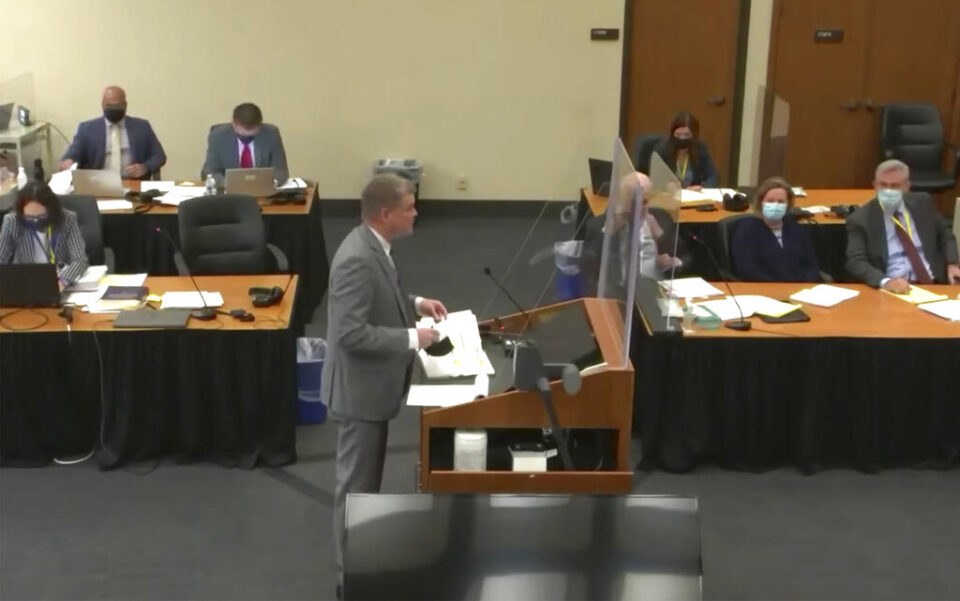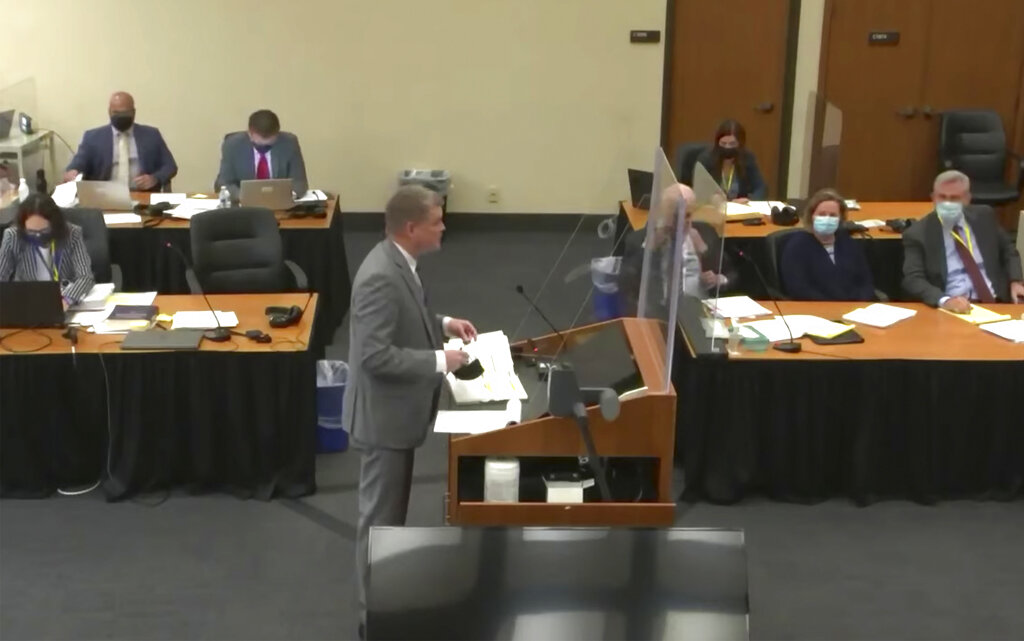
MINNEAPOLIS (AP) — A mostly white jury was seated Friday for the trial of a suburban Minneapolis police officer charged in Daunte Wright’s shooting death, and opening statements were scheduled to begin next week.
Kim Potter, 49, is charged with first- and second-degree manslaughter in the April 11 shooting of Wright, a 20-year-old Black motorist, following a traffic stop in the suburb of Brooklyn Center.
Potter, who is white, has said she meant to use her Taser on Wright after he pulled away from officers while they were trying to arrest him, but that she drew her handgun by mistake. Her body camera recorded the shooting.
The last two jurors, both alternates, were quickly seated Friday morning. Opening statements are scheduled for Wednesday.
Nine of the first 12 jurors seated — the ones who will deliberate if no alternates are needed — are white, with one juror identifying as Black and two as Asian. It’s evenly split between men and women. The two alternates are also white.
The jury roughly matches the demographics of Hennepin County, which is about 74% white. Its makeup was closely watched, as legal experts have said that juries that are diverse by race, gender and economic background are necessary to minimize bias in the legal system.
The jury is markedly less diverse than that chosen for the trial last spring of former Minneapolis Officer Derek Chauvin in George Floyd’s death. In that case, the 12 who deliberated were split 50-50 between whites and people of color.
Ted Sampsell-Jones, a professor at Mitchell Hamline School of Law in St. Paul, said Chauvin’s jury was “mostly just luck of the draw.”
He said racial and ethnic diversity matters in terms of the perceived legitimacy of the jury, but attitudes about police and policing are much more important for the case outcome.
“It might be true in general that Black people are more distrustful of police than white people, but it isn’t true as
to every individual,” Sampsell-Jones said. “Lots of young white people in Hennepin County are far more progressive and anti-cop than some older Black people, for example.”
Attorneys and the judge have probed potential jurors for what they knew about Wright’s death and about their views of protests against police brutality that were frequent in Minneapolis even before George Floyd’s death.
Potter, who resigned two days after Wright’s death, has told the court she will testify. Body-camera video recorded the shooting, with Potter heard saying, “Taser, Taser, Taser” before she fired, followed by, “I grabbed the wrong (expletive) gun.”
Wright was shot in Brooklyn Center as former Minneapolis Officer Derek Chauvin was standing trial 10 miles (16 kilometers) away for killing Floyd. Wright’s death sparked several nights of intense protests in the suburb.
The most serious charge against Potter requires prosecutors to prove recklessness; the lesser only requires them to prove culpable negligence. Minnesota’s sentencing guidelines call for a sentence of just over seven years on the first-degree manslaughter count and four years on the second-degree one. Prosecutors have said they would seek a longer sentence.

